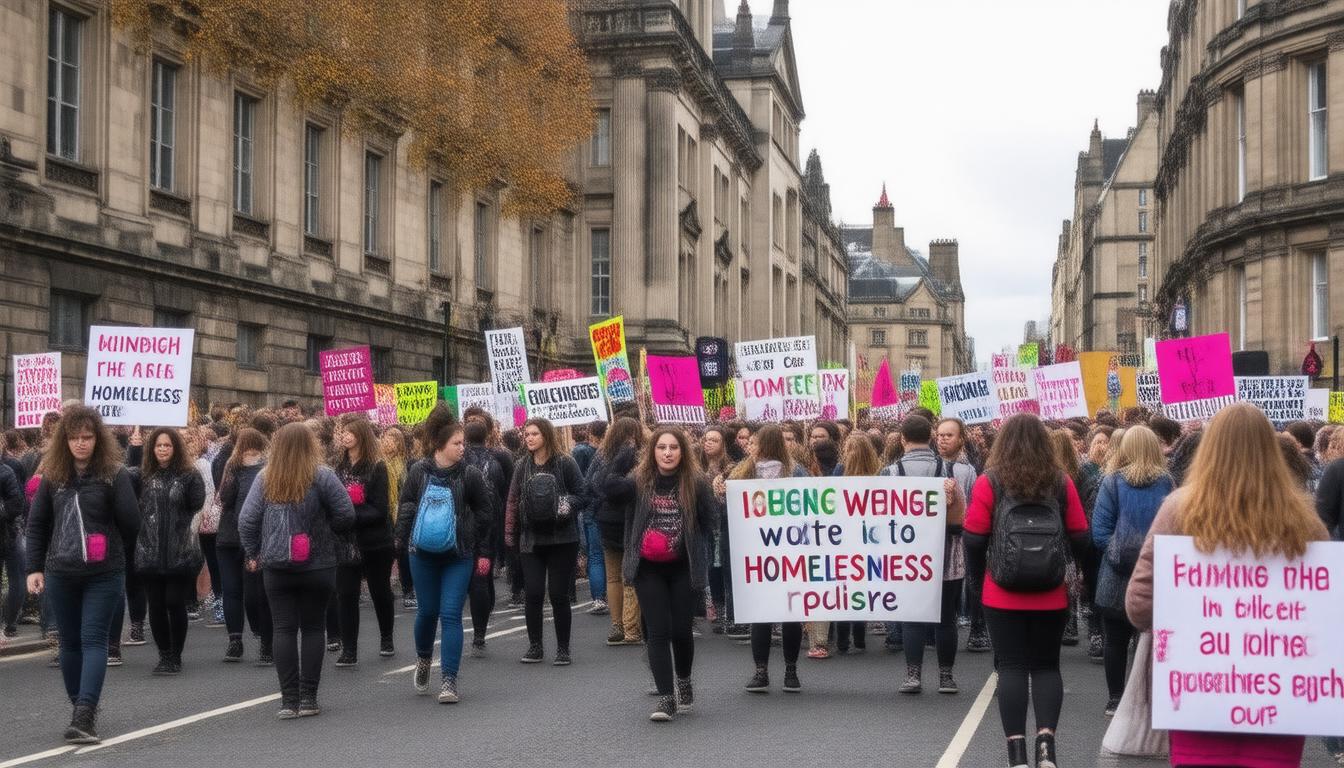In a bold move reflecting growing concerns over homelessness management, Shelter Scotland has publicly demanded a leadership change within the City of Edinburgh Council. The charity’s stance arises from the council’s controversial decisions surrounding homelessness policies and the use of unlicensed houses in multiple occupation (HMOs). This call for change follows a contentious meeting on December 3, 2024, where council members voted to suspend certain housing rights until March
2028. They also sought a Scottish government exemption to utilize unlicensed HMOs under conditions viewed as detrimental to homeless individuals. Here, we explore the implications of these policies and Shelter Scotland’s response that has ignited a broader debate on the handling of homelessness in Scotland’s capital.
Key Takeaways
- Shelter Scotland is advocating for a leadership change in the City of Edinburgh Council over contentious homelessness policies.
- The council’s decision to suspend housing rights and use unlicensed HMOs has raised serious concerns about the rights of homeless individuals.
- Edinburgh has the second-highest rate of homelessness in Scotland, highlighting the urgency of the issue.
Background on Homelessness Policies in Edinburgh
In a significant escalation of tensions surrounding homelessness policies in Edinburgh, Shelter Scotland has called for the resignation of the City of Edinburgh Council’s leadership. This move follows a contentious council meeting held on December 3, where members voted to suspend key housing rights for homeless individuals until March
2028. The council also sought governmental permission to utilise unlicensed houses in multiple occupation (HMOs) under certain parameters, a decision Shelter Scotland argues infringes on the rights of those without homes and enables potentially detrimental practices in housing accessibility (Shelter Scotland, 2024). As the city grapples with a staggering homelessness crisis—ranking second in Scotland, with over 5,250 households currently living in temporary accommodations—Shelter Scotland’s position highlights a deepening concern over the council’s commitment to safeguarding vulnerable populations (Scottish Government, 2024). The council, however, defends these measures as necessary responses to manage an overwhelming number of cases, aiming to create a more robust emergency response framework in light of the rising demand for housing solutions in Edinburgh (City of Edinburgh Council, 2024).
This dispute is particularly crucial as Edinburgh faces increasing scrutiny regarding its homelessness strategy, raising questions about governance, accountability, and the prioritisation of human rights in housing policy. Shelter Scotland’s call for leadership change underscores the growing frustration among charities and advocacy groups, as they push for a sustainable and equitable approach to tackling homelessness.
In light of these developments, the future of homelessness policy and its administration in Edinburgh remains uncertain, necessitating urgent community engagement and transparent decision-making to regain public trust and ensure the rights of the most vulnerable are upheld.
Shelter Scotland’s Response and Demands for Change
The controversy highlights a critical juncture for housing policy in Edinburgh as Shelter Scotland demands that local authorities prioritize humane solutions over temporary fixes. The charity’s concerns are compounded by evidence suggesting that the city’s approach not only jeopardizes the rights of vulnerable members of society but may also contravene the principles set forth in Scotland’s housing legislation, including the Homelessness etc. (Scotland) Act 2003, which emphasizes the right to suitable housing for all individuals (Scottish Government, 2024). Moreover, advocacy groups are rallying support for a holistic review of current homelessness strategies, urging the Scottish Government to intervene and ensure that councils adhere strictly to legislative guidelines designed to protect the rights and dignity of homeless individuals. As the situation evolves, stakeholders are advocating for increased transparency and a collaborative approach among government bodies, NGOs, and the impacted communities to create a sustainable framework that addresses not just the symptoms of homelessness but its root causes as well (Shelter Scotland, 2024). This ongoing debate encapsulates a broader struggle in urban management and social justice, emphasizing the need for policies that reaffirm the commitment to human rights in the face of pressing societal needs.
Feel free to contact us via WhatsApp, social media, or email.
Always find the best rooms to rent & HMOs for sale in the UK at HMO Reporter.





